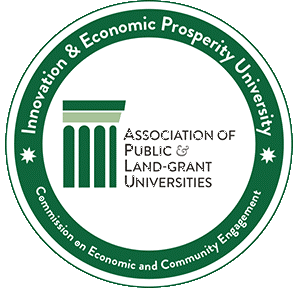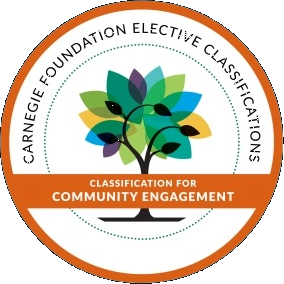Attention: Faculty, Academic Staff, and Graduate Students
Thursday, September 23, 2021
10:30 a.m. – 12:00 p.m. | ZOOM
Are you looking for opportunities to get involved in community-engaged health-related research? Then join us for this webinar on opportunities for conducting health-related research in partnership with the ACCESS Community Health and Research Center in Dearborn, Michigan.
The Arab Community Center for Economic and Social Services (ACCESS) Community Health and Research Center (CHRC) is the largest and most comprehensive Arab community-based health and mental health center in North America. The CHRC is a fully integrated community health “one-stop service center” comprised of medical, public health and research, mental health and environment programs. The CHRC’s mission is to provide public health programs and research opportunities that focus on the needs of Arab Americans locally and nationwide. The CHRC has a long history of collaborating with U.S. and international researchers. ACCESS is pleased to announce its 9th Arab Health Summit, October 19-21, 2021.
In this webinar, CHRC leaders will provide an overview of the ACCESS CHRC and how to explore opportunities for research partnerships with the CHRC, followed by “case study” presentations by ACCESS and MSU partners who have collaborated on health-related research projects.
SPEAKERS:
ACCESS
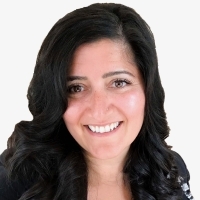
Madiha Tariq, Deputy Director, ACCESS CHRC
Madiha Tariq is the deputy director of the ACCESS Community Health and Research Center. She oversees health promotion and disease prevention programs, including: substance abuse, tobacco cessation, infectious disease prevention, maternal and infant health, and refugee health and wellness programs. As an advocate for the health rights of Arab Americans and other minorities, Tariq is at the forefront of Arab community-based research. She has managed the planning and implementation of various international Arab health conferences, providing a platform for presenting ground-breaking research on Arab Health and preserving it through publications. Tariq also advocates for improved access to health care through the ACCESS Affordable Health Care Education and Enrollment Initiative. She earned her Master of Public Health degree from George Washington University and a Bachelor of Arts degree in International Politics and Economics from Middlebury College.
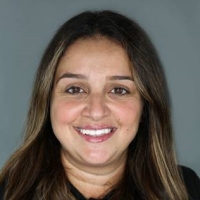
Mona Abdallah-Hijazi, Community Engagement Manager, ACCESS CHRC
Mona Abdallah-Hijazi is a Community Engagement Manager at ACCESS. She leads the ACCESS Substance Abuse Program (ASAP) Community Coalition and works with Syrian Refugees in the Building Blocks for New Americans Program. She is currently a member of Healthy Dearborn Coalition Steering Committee, Greater Detroit Area Health Council Opioid Task Force, and the Michigan Department of Health & Human Services Prescription Drug Overdose Prevention Team, CADCA Member, and Michigan Open Advisory Board. She will be conducting research in collaboration with Michigan State on substance abuse among Arab Americans in upcoming year through the Community Based Participatory Research. Mona graduated from Davenport University with her Master's in Business Administration and Master’s in healthcare administration in 2012.

Riham Ayoub, Public Health Coordinator, ACCESS CHRC
Riham Ayoub is a Public Health Coordinator at ACCESS with a Bachelor of Arts in Communication and Health Studies from Marquette University in Milwaukee, Wisconsin, and Master of Public Health from UTHealth Houston, Texas. Interests include social determinants of health, health promotion, and health behaviors.
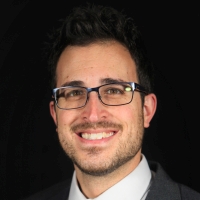
Matthew Jaber Stiffler, Research and Content Manager, Arab American National Museum
Matthew Jaber Stiffler is the Research & Content Manager at the Arab American National Museum in Dearborn, MI. Matthew also leads a national research program through ACCESS, the largest Arab American community non-profit in the country, to secure better data about the Arab American community. Matthew received his Ph.D. in American Culture from the University of Michigan in 2010, where he serves as a lecturer in Arab and Muslim American Studies. He is a former board member of the Arab American Studies Association and serves on the executive board of Michigan Humanities.

Delaney McDermott, Emergency Services Caseworker, ACCESS CHRC
Delaney is a recent graduate from Michigan State University and the James Madison College. She now works at ACCESS as an Emergency Services Caseworker. She hopes one day to continue her education by pursuing a masters, but for now enjoys the work of hands-on social services.
MSU

Bengt Arnetz, Professor, Family and Preventive Medicine, College of Human Medicine
Bengt B. Arnetz, MD, PhD, MPH, MScEpi, is Professor of Family and Preventive Medicine, College of Human Medicine, Michigan State University, Grand Rapids, MI. He holds MD and PhD degrees from the Karolinska Institute in Stockholm, Sweden, and Masters degrees from the Harvard T.H. Chan School of Public Health.
He completed his residency training at Harvard and is board certified by the American Boards in Preventive Medicine in Occupational and Environmental Medicine. His research focuses on the impact on health care systems of financial, structural, technology, and patient preferences. He also carries on research on the psychophysiological basis of health disparities.
Dr. Arnetz is currently the Co-I on a grant (Grant Number: 6 CPIMP201205-01-01) to ACCESS from the U.S. U.S. Department of Health and Human Services (HHS) Office of Minority Health (OMH) to ACCESS. Madiha Tariq, MPH, ACCESS, is the Project Director. The overall objective of the project is to evaluate whether a community information campaign about the Earned Income Tax Credit (EITC) targeting qualifying Arab-American families results in increased EITC claims and decreased risk factors for adverse childhood experiences (ACEs) foremost targeting physical activity and self-reported economic hardships. Dr. Arnetz has a long history of conducting federally funded research in collaboration with ACCESS. The focus of the projects is to enhance our understanding of psycho-social and biological factors linking social and environmental stressors to adverse health experiences.
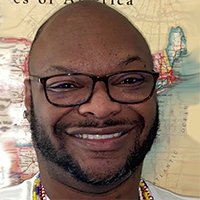
Kaston Anderson-Carpenter, Assistant Professor, Department of Psychology, College of Social Science
Dr. Kaston Anderson-Carpenter is an Assistant Professor of Psychology at Michigan State University. He earned his Ph.D. in Behavioral Psychology from The University of Kansas and completed his postdoctoral fellowship at UCLA in Addiction Health Services Research. Dr. Anderson-Carpenter also holds master's degrees in public health, experimental psychology, and applied behavior analysis. Additionally, he is a licensed and doctoral-level Board Certified Behavior Analyst.
Dr. Anderson-Carpenter's research focuses on addiction and social determinants of health in underserved and marginalized communities. He is also the Co-Principal Investigator on an NIH-funded grant entitled Measure Development to Advance the Scientific Study of Minority Stress in Transgender Individuals. In his role, Dr. Anderson-Carpenter serves as a quantitative methodologist and chief psychometrician. Moreover, he has conducted multiple community-based projects using both quantitative and qualitative methods. He has given multiple scientific talks to both national and international audiences. Since 2010, Dr. Anderson-Carpenter has worked with community organizations and policy makers to address socially important issues affecting marginalized and underserved populations.
Sponsored by: MSU University Outreach and Engagement; MSU Department of Family Medicine, College of Human Medicine








